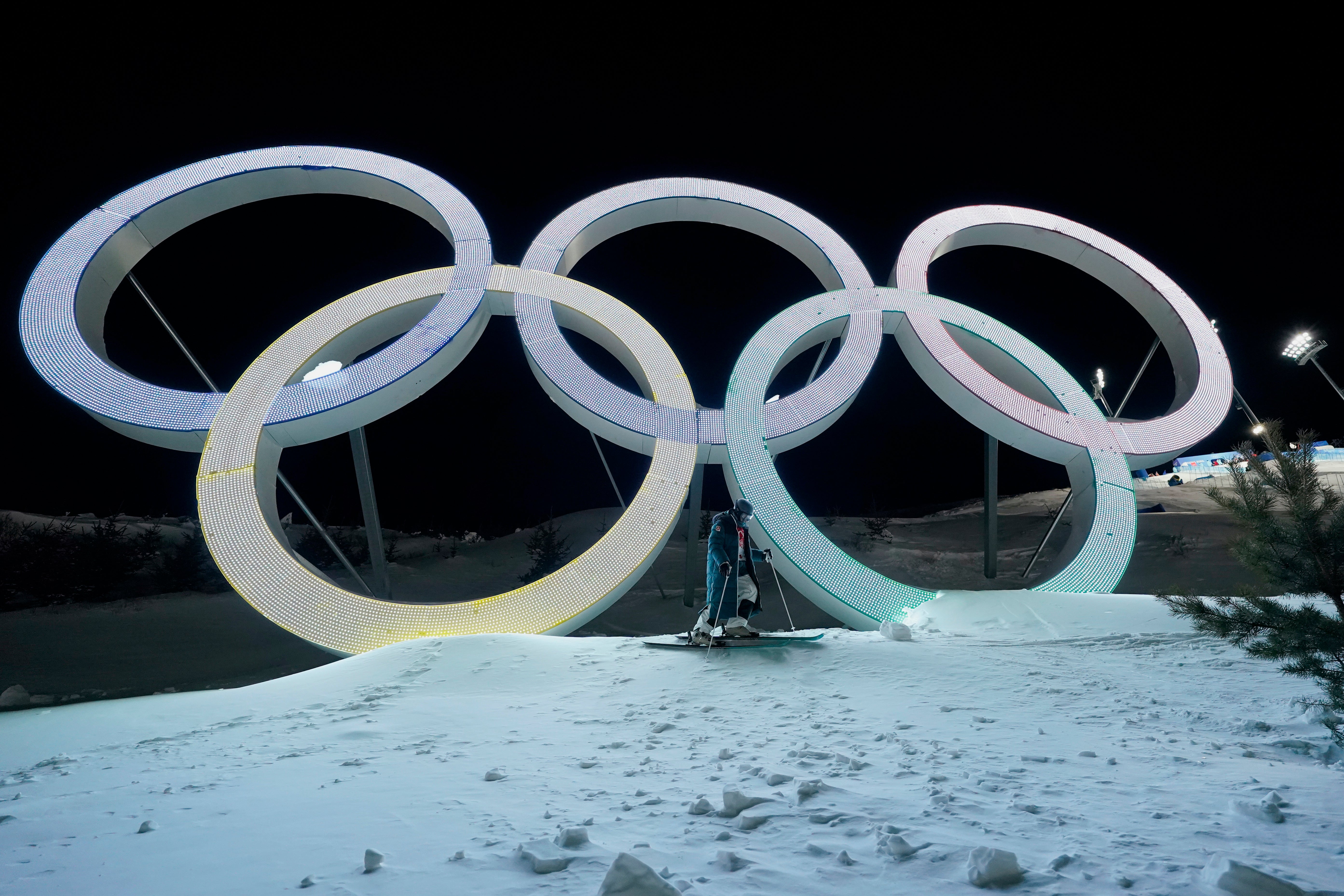The Host Cities of Past Winter Olympics
As the 2014 Winter Olympic Games in Sochi are about to launch in less than a fortnight, we take a look back at the Winter Olympics of yesteryear. If you are not able to take part in the festivities in Russia in person this year, we are here to reintroduce you to some of the wonderful host cities of the past, where you can enjoy fantastic winter sports this season. We have also gathered some fun facts about past Olympiads to allow you to brush up on your Olympics trivia. Take a look at some of the most prolific host countries, and rekindle your Olympic spirit!
Gold medal: USA, four-time host
The United States has hosted the Winter Olympic Games more times than any other country. The host cities are also varied geographically, as two-time host Lake Placid is found in the east of the country, Squaw Valley in the west, and Salt Lake City more in between. All of these host cities offer great activities this time of year, so pick up a car hire in the USA and take in the Olympic glamour of years past!
Lake Placid
Lake Placid hosted the Winter Olympics in 1932 as well as in 1980. This lovely village is situated in the Tri-Lakes region in the state of New York, and boasts fantastic opportunities for winter sports on Whiteface Mountain, Alpine and Nordic skiing in particular. You can drive to Lake Placid from Burlington, Vermont.
Did you know? For the first time in Olympic history, artificial snow was used at the 1980 Olympics in Lake Placid.
Squaw Valley
Located in the Sierra Nevada mountain range in California, the ski area in Squaw Valley is one of the largest in the United States, and can be easily reached from Sacramento, California, or Reno, Nevada. Squaw Valley hosted the Winter Olympics in 1960.
Did you know? The Winter Olympics in Squaw Valley were the first to be televised live.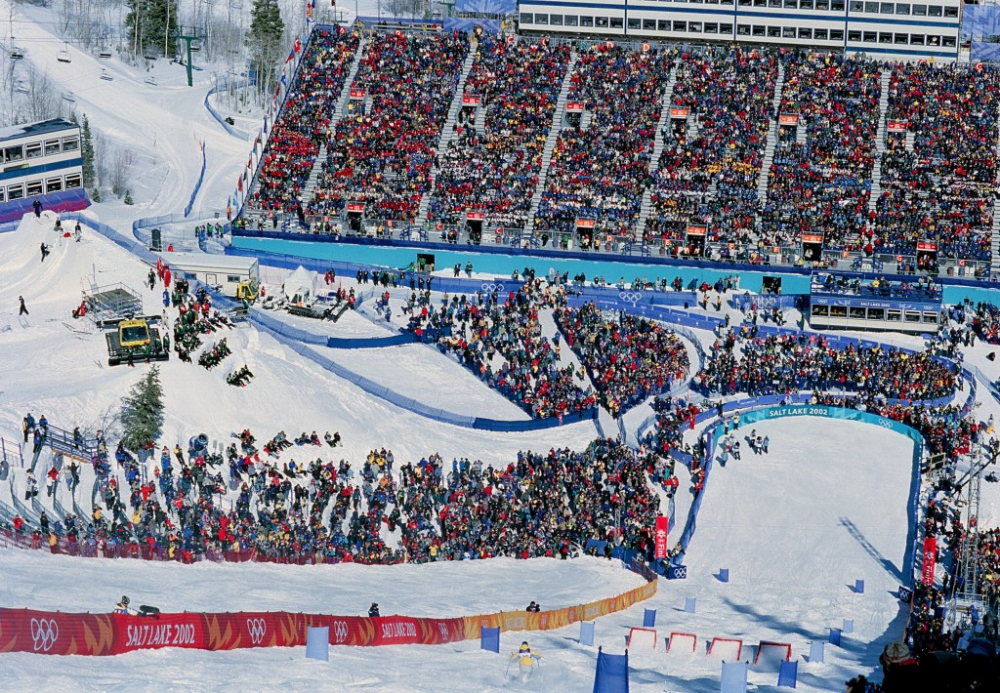
Silver medal: France, three-time host
A close second after the USA, France has played host to the Winter Olympics three times, and is the most prolific host in Europe. All the host locations, Chamonix, Grenoble, and Albertville, are located in the beautiful Rhone-Alpes in south-east France, and can be conveniently explored by hiring a car in France.
Chamonix
Among the oldest ski resorts in France, Chamonix hosted the very first Winter Olympic Games in 1924. The majestic peaks of the Aiguilles Rouges surround Chamonix, and it is claimed that even the north side of the summit of Mont Blanc is part of the village.
Did you know? After a call for equality for winter sports and much deliberation at an International Olympic Committee convention in Lausanne in 1921, it was decided that what was then called an ‘International Winter Sports Week’, and would later become the Winter Olympic Games, should be held.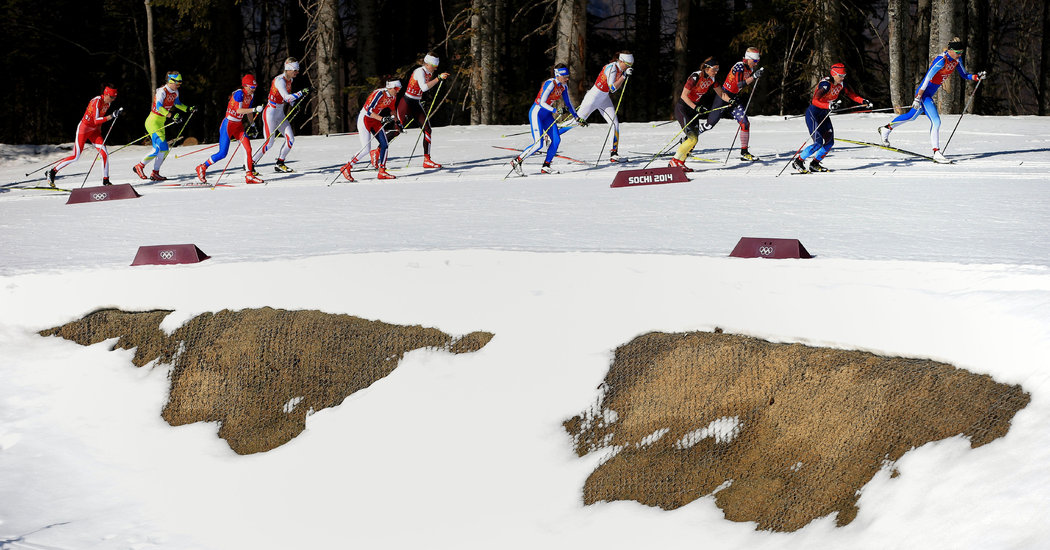
Grenoble
With a rich history of over 2,000 years, Grenoble has grown from a Gallic village into a bustling town. A picturesque landscape is created by the surrounding French Alps, as well as the joining of the Drac and Isère rivers. The Winter Olympics took place in Grenoble in 1968.
Did you know? The 1968 Olympics were the first to have a mascot, even if only an unofficial one: a cartoon character on skis. This was also the first year that doping tests were used in the Winter Olympics.
Bronze medal: Switzerland and Austria (as well as Norway, Italy, Japan, and Canada)
The podium gets quite crowded for the bronze medallists, as six countries worldwide have had the honour of hosting the Winter Olympics twice. Here, we highlight Switzerland and Austria, as St. Moritz and Innsbruck are the only host cities, with the addition of Lake Placid, to have hosted the Games twice.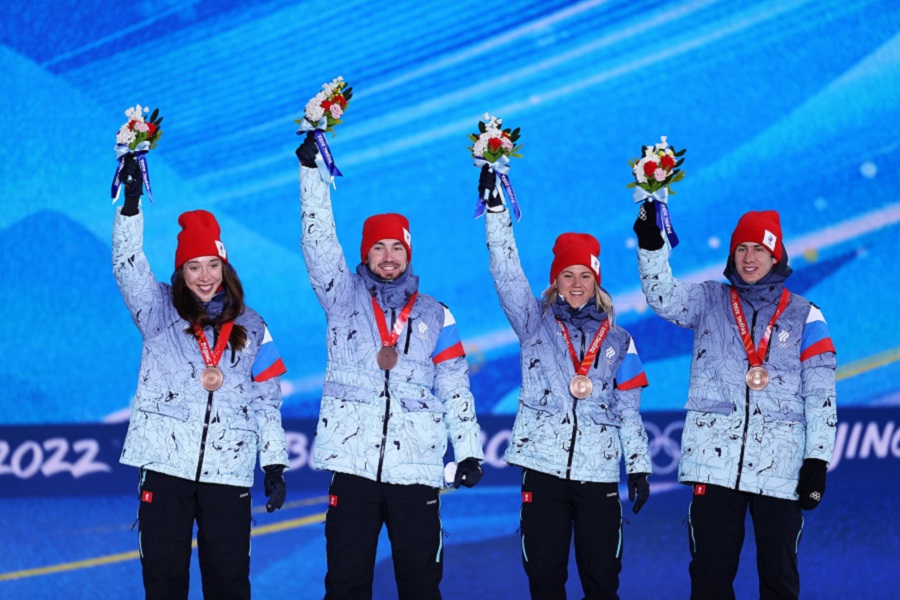
St. Moritz, Switzerland
A popular ski destination for international jet-setters, St. Moritz hosted the Winter Olympics in 1928 and 1948. St. Moritz is one of the most expensive ski resorts in the world, but one can hardly question why: the sun shines on over 300 days a year, and Piz Bernina, the Eastern Alps’ highest summit, is only a few miles away.
Did you know? The 1928 Olympics experienced difficulties with fluctuating weather, leading to an event being cancelled due to the temperature rising as high as 25 degrees Celsius. The 1948 Winter Olympic Games were the first following World War II, the previous ones having taken place 12 years prior.
Innsbruck, Austria
Nestled in the middle of the Nordkette, Patscherkofel, and Serles mountains (all standing at more than 7,000 feet above sea level), Innsbruck, the capital of the federal state of Tyrol, was host to the Winter Olympics in 1964 and 1976. Besides its fantastic winter sports activities, the town boasts a lovely historic town centre.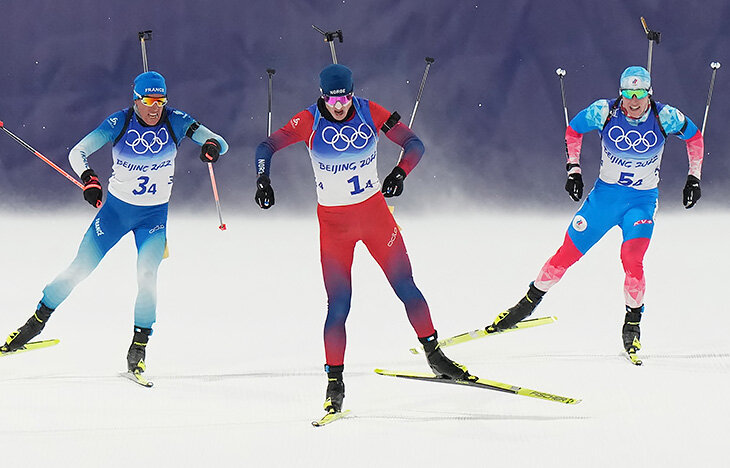
Did you know? Uncommonly for Innsbruck, lack of snow threatened to derail the Games in 1964. Luckily, the Austrian army came to the rescue: 20,000 ice cubes were carved from on top of a mountain for the luge and bobsled courses, and 40,000 cubic metres of snow were carried and packed down using hands and feet for the Alpine skiing events.
All the Past Winter Olympics Sites Throughout History – NBC4 Washington
The saying “Let the Games begin!” first applied to the Winter Olympics in 1924.
That was when the first official Olympic Games took place, representing the culmination of more than three decades of competition in international winter sports.
It was in 1889 when the first official world championship was organized, with the Amsterdam Speed Skating Club holding the speed skating world championships. Other winter sports soon followed suit, leading to conversations of holding the first winter version of the Olympics.
The idea took some convincing.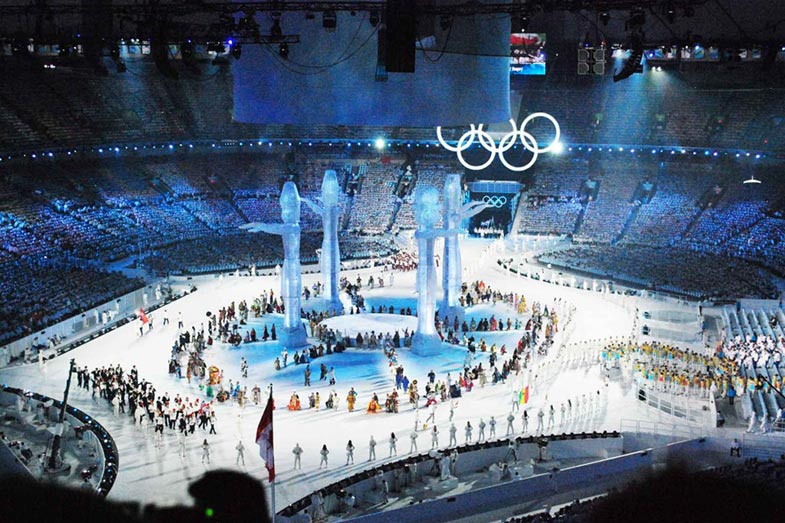
In 1911, International Olympic Committee member Count Brunetta d’Usseaux of Italy suggested the idea, only to have it rejected with plans already set for the 1913 Nordic Games, which was designed to be a complement to the Olympic Games.
At the Congress of the National Olympic Committees in Paris in 1914, the idea of a Winter Olympics again was discussed, garnering more support. Instead, ice skating, skiing and ice hockey were added to the existing Olympic program as optional sports.
Following an eight-year Olympic hiatus due to World War I, talks of the Winter Olympics resumed in 1921 at an advisory meeting. France offered to host “International Winter Sports Week” for 1924. The idea was endorsed by Switzerland and Canada, and opposed by Norway and Sweden. Baron Pierre de Coubertin, the founder of the IOC who is recognized as the father of the modern Olympics, also opposed the idea but suggested the IOC further discuss it in 1922 in Paris.
Beijing 2022 Winter Olympics
Watch all the action from the Beijing Olympics live on NBC
There, the Winter Olympics were officially born.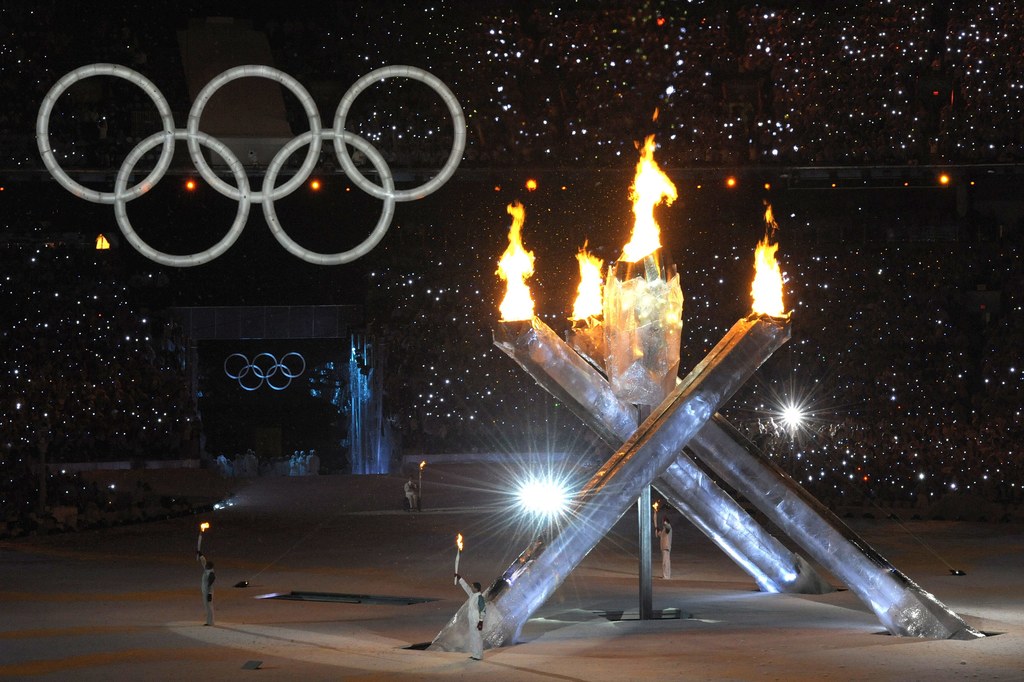
Let the Games begin!
Where was the first Winter Olympics held?
The first Winter Olympics were held in Chamonix, France, in 1924 from Jan. 26 to Feb. 4.
There were 16 events with 258 athletes competing. The event drew just over 10,000 spectators.
The first gold medal in Winter Games history went to the United States’ Charles Jewtraw, who had a stunning victory in the 500m speed skating event. That would be the only gold for the U.S. in the first Winter Olympics, with the Americans also capturing silver in hockey and figure skating (Beatrix Loughran) and bronze in ski jumping (Anders Haugen).
Norway, which remains the Winter Games leader in medals won (368) and gold (132), earned the most medals in 1924 with 17 (four gold, seven silver and six bronze). Finland had second most with 11 medals (four gold, four silver, three bronze), which included five by speed skater Clas Thunberg, who took home three golds to become the top performer of the inaugural Winter Games.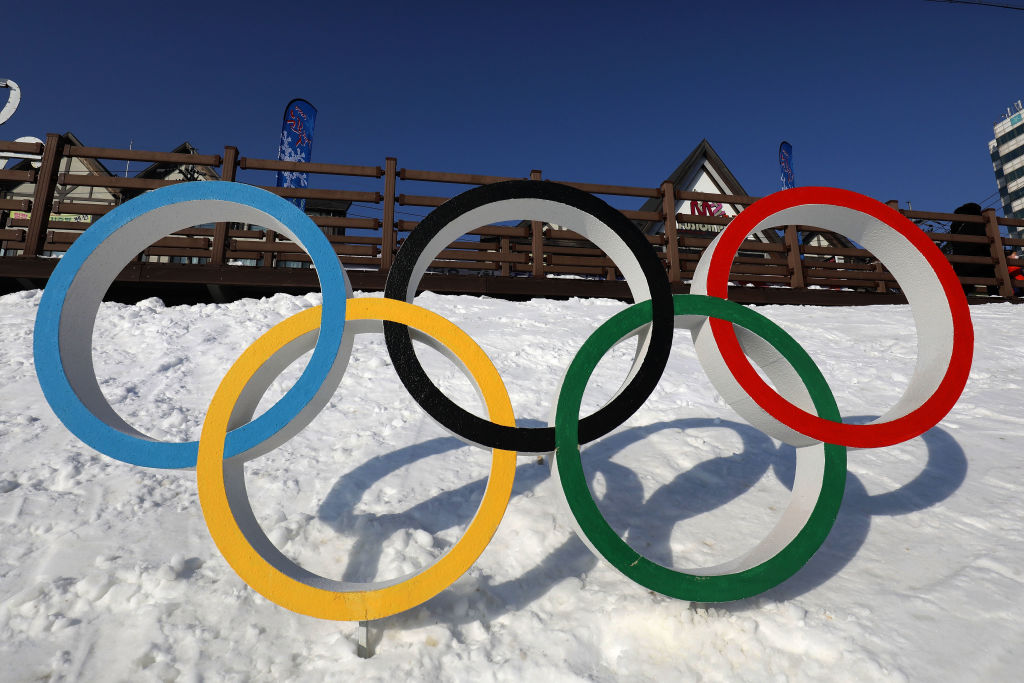
Which country has hosted the winter Olympics the most?
The United States has hosted more Winter Olympics than any country with four – in 1932, 1960, 1980 and 2002. France has held the second most with three.
Ski jumping at the Olympics? Pack your skis, your vest … and a seamstress? NBCLX’s Ngozi Ekeledo and Fernando Hurtado explain why ski jumpers travel with a seamstress. They also get a close look at the medals that will be handed out at the 2022 Beijing Winter Olympics.
Which countries have hosted the Winter Olympics?
The Winter Games originally were held in the same calendar year as the Summer Games. That changed following an IOC vote in 1986 that created the current two-year cycle, which began in 1994.
Here’s each host country for the Winter Olympics:
I – Chamonix, France (1924)
II – St. Moritz, Switzerland (1928)
III – Lake Placid, New York (1932)
IV – Garmisch-Partenkirchen, Germany (1936)
V – St.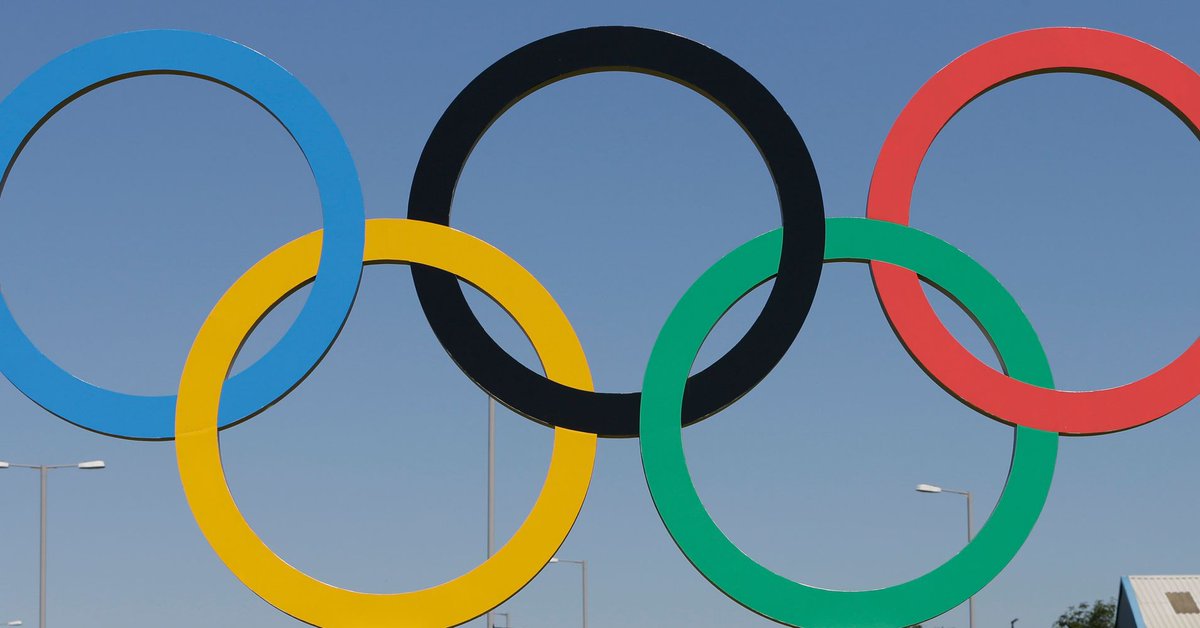
VI – Oslo, Norway (1952)
VII – Cortina d’Ampezzo, Italy (1956)
VIII – Olympic Valley, California (1960)
IX – Innsbruck, Austria (1964)
X – Grenoble, France (1968)
XI – Sapporo, Japan (1972)
XII – Innsbruck, Austria (1976)
XIII – Lake Placid, New York (1980)
XIV – Sarajevo, Yugoslavia (1984)
XV – Calgary, Alberta (1988)
XVI – Albertville, France (1992)
XVII – Lillehammer, Norway (1994)
XVIII – Nagano, Japan (1998)
XIX – Salt Lake City, Utah (2002)
XX – Torino, Italy (2006)
XXI – Vancouver, Canada (2010)
XXII – Sochi, Russia (2014)
XXIII – PyeongChang, South Korea (2018)
XXIV – Beijing, China (2022)
The design of the medals is a nod to the 2008 Beijing Summer Olympics, while embracing elements of winter sports.
Chamonix 1924 Winter Olympics
Loading…
DateJanuary 25th, 1924 – February 5th, 1924
CountryFrance
Athletes260
Teams16
Competitions16
Chamonix 1924 Official Film | 1924 Chamonix OlympicsOfficial FilmsThe Birth of the 1924 Winter OlympicsChamonis 1924
About the Games
The First Winter Games
In 1921, the International Olympic Committee decided three years later to hold a winter sports week in Chamonix under its patronage.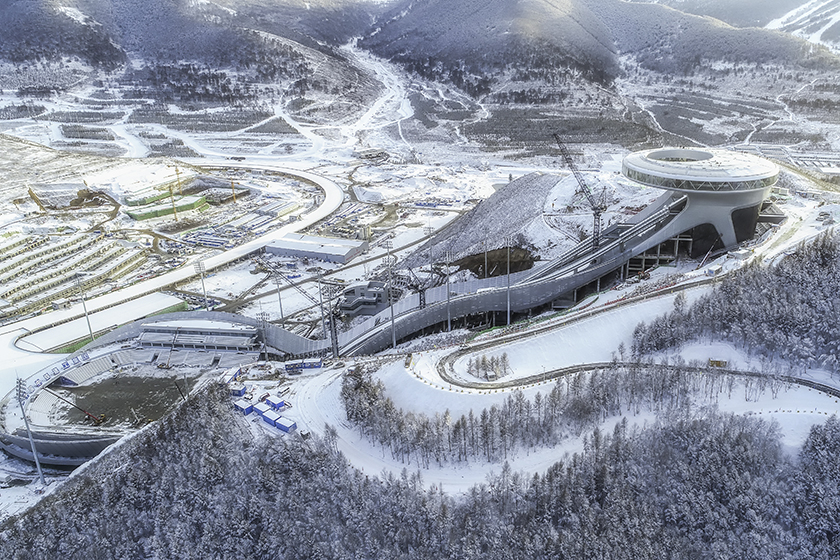
Great Champions
The first champion of the Winter Olympics was the American speed skater Charles Jetrow, who won the 500 meters. He was eclipsed by Klas Thunberg of Finland, who took four medals in five speed skating disciplines, including three golds.
Fantastic Canadians
Canadians had no equal in ice hockey. They won the first three matches in Chamonix with a total score of 85:0, and by the end of the tournament the goal difference was 122:3.
Worth the wait
It took Anders Haugen fifty years to get a bronze medal in ski jumping. Initially, the American was awarded fourth place, but in 1974 a mistake made in scoring was revealed, and at the age of 83, Haugen received his bronze.
NOC: 16
Athletes: 260 (13 women, 247 men)
Medal sets: 16
Volunteers:
3
Journalists: n.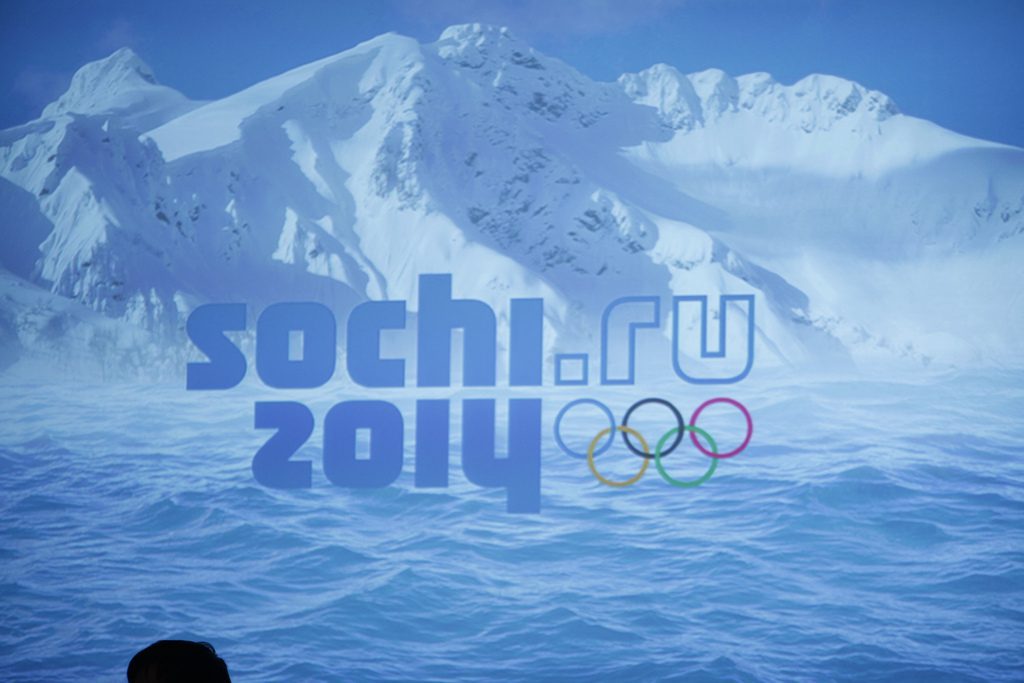
Official recognition
The Games in Chamonix were at first simply called Winter Sports Week. In 1926, at the 25th session of the IOC in Lisbon, it was decided to recognize them as the first Winter Olympics.
Awarding ceremony
The medalists were awarded only on February 5 – shortly before Pierre de Coubertin’s closing speech. Since many of the athletes had already gone home, Franz Reischel presented the medals he was entitled to to other members of their delegations.
At the foot of the glacier
The bobsleigh competition took place on the Pelerin track, named after the nearby glacier. All sports equipment was lifted there using the old cable car that led to the top of the Aiguille du Midi.
On their shoulders
Many athletes went to the opening ceremony with equipment (skis, sticks, etc.) on their own shoulders. According to the rules of those years, the participants had to march in sports equipment, which included both skis and clubs.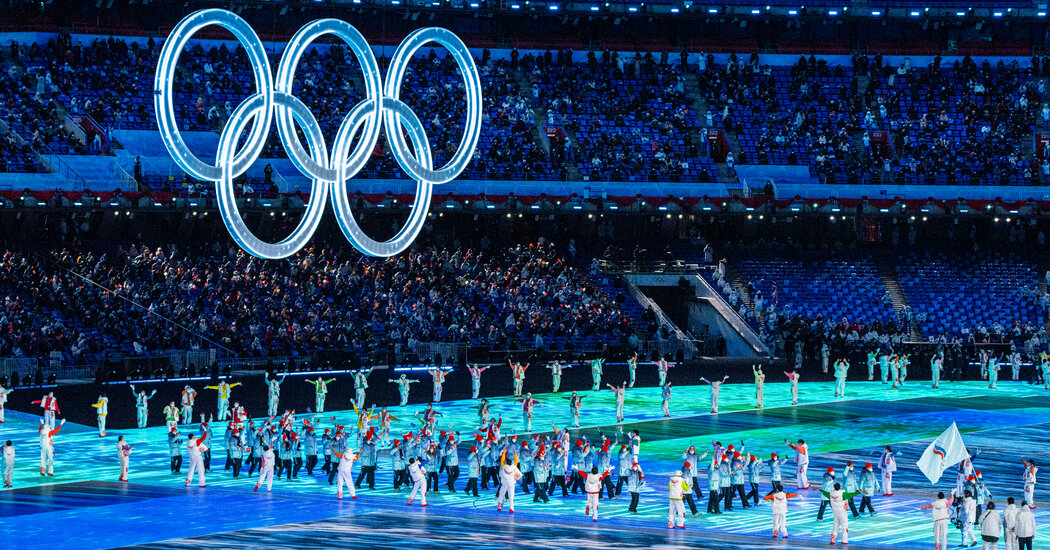
Thank you for coming
The 50 km cross-country skiing race took place in harsh weather conditions with strong frosty winds. If Thorleif Heug, who won gold, covered the distance in 3 hours and 44 minutes, then the last participant finished 2.5 hours later.
Ceremonies
Chamonix, January 25, 1924. Delegations at the Olympic Stadium.
Official opening of the Olympics
Secretary of the Department of Physical Education Gaston Vidal
Lighting of the Olympic Flame
The symbolic lighting of the Olympic flame at the Winter Olympics was first held in 1936 in Garmisch-Partenkirchen.
Athletes’ Olympic Oath
Camille Mandrillon (military patrol)
Referees’ Olympic Oath
The referees’ oath at the Winter Olympics was first taken in 1972 in Sapporo.
Medal standings
All teams, all medals.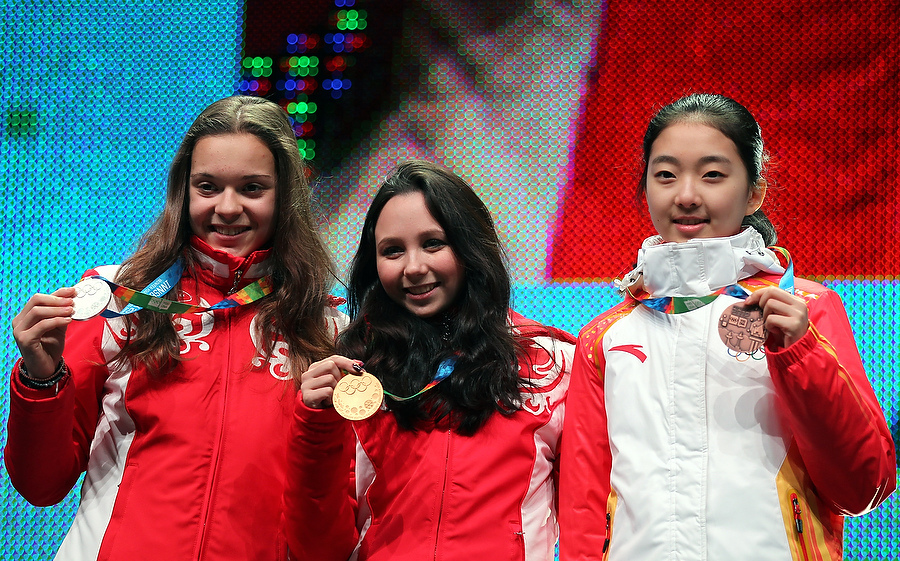
View
Results
Chamonix 1924
Athletes
All Athletes
USA
Austria 900 1 Finland3
2 03
Austria
Birth of the Winter Olympics
Chamonix 1924 Chamonix 1924
Discover for yourself Games
Brand
Each Olympic Games has its own visual concept.
Brand
Medals
Starting with the laurel wreath, award design has evolved over the centuries.
Medals
Olympic Games
XXII Winter Olympic Games
The Russian city of Sochi was chosen as the host of the 2014 Winter Olympics at the 119th session of the IOC, held in Guatemala on July 4, 2007. In the first round of voting, in which 97 participants from representatives of the IOC countries took part, Austrian Salzburg dropped out of the list of applicants, and in the second round Sochi won the bid, ahead of Korean Pyeongchang by 4 votes (51 against 47).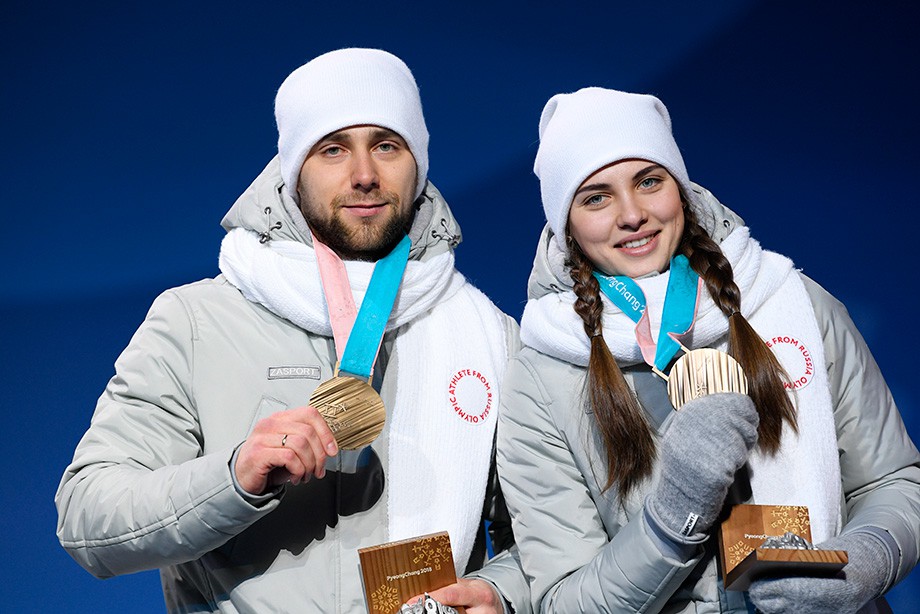
The main world sports forum was held in Russia for the second time. Until Sochi hosted the XXII Winter Olympics, Moscow also became the capital of the XXII Olympic Games in 1980, but already in the summer sports disciplines.
The Sochi Olympics went down in history as the most innovative. During its preparation, much was done for the first time and subsequently became part of the colossal legacy of the Games. In Sochi, modern sports facilities were built specifically for the competitions, which were built using the most advanced construction technologies and environmental protection. One of the innovations is the compact arrangement of sports and infrastructure facilities, which guarantees the utmost ease of movement and the absence of transport problems. A distinctive feature was the fact that the Games were held in a unique climatic zone, where the warm sea is adjacent to snowy peaks, the slopes of which have long become a popular holiday destination for winter sports enthusiasts.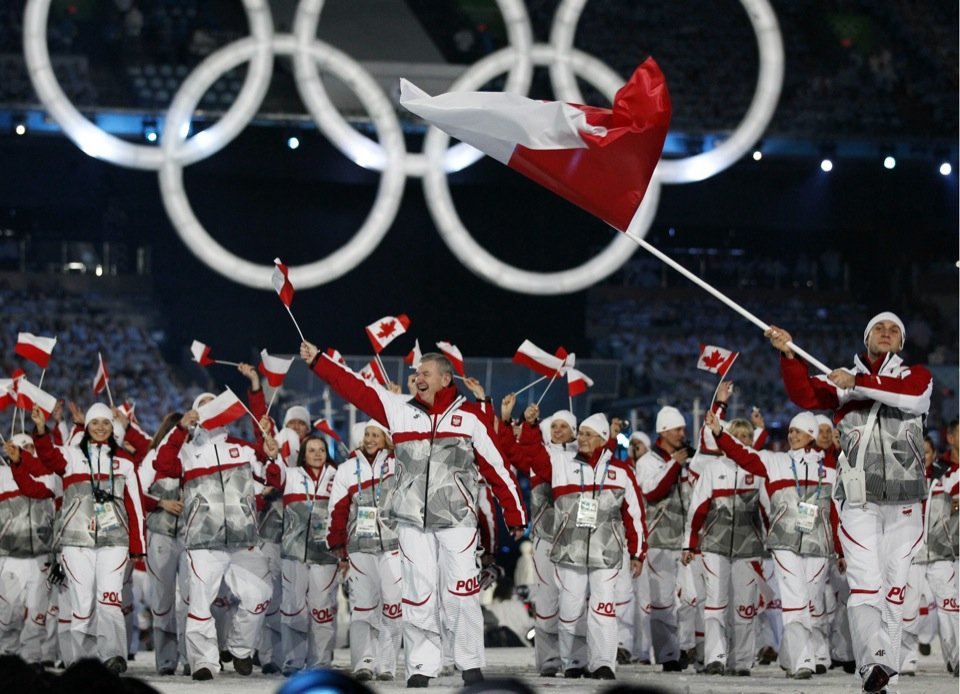
The Olympic torch relay started in Moscow on October 7, 2013 and finished in Sochi on February 7, 2014. This relay has become the longest in the history of 123 days and the longest over 40,000 kilometers. It was attended by 14,000 torchbearers. The Olympic flame was carried through the capitals of all 83 constituent entities of the Russian Federation, visited the deepest lake in the world, Baikal, Elbrus, the North Pole, and in open space.
The solemn opening ceremony of the Games was held on February 7 at the Fisht stadium and lasted about three hours. More than three billion people around the world watched the colorful show. The opening of the Sochi Olympics was attended by 44 heads of state, more than at the Winter Games in Vancouver and Turin combined.
After the delegations of all countries participating in the Olympics appeared on the arena of the stadium, the President of the Organizing Committee Dmitry Chernyshenko, and then the President of the International Olympic Committee (IOC) Thomas Bach greeted the athletes, volunteers and all people involved in this great sports festival.
Ruslan Zakharov took the athletes’ Olympic oath, Vyacheslav Vedenin Jr. took the judges’ oath, and Anastasia Popkova took the coaches’ oath. The Olympic flame was lit by three-time Olympic champions Irina Rodnina (figure skating) and Vladislav Tretiak (ice hockey).
The performance of Russian athletes at this Olympics was truly triumphant. In terms of the number of medals won, the national team not only showed the most outstanding result in the history of Russia’s performance at the Winter Games, but also surpassed the highest achievements of Soviet Union athletes in this indicator.
Compared to Vancouver in Sochi, the number of competitions was increased by 12 different disciplines and 98 sets of awards were played in 15 sports. Russian sportsmen, having won 33 medals of various denominations, took 1st place in the unofficial team standings.
The Russian Federation was represented by 225 athletes at the XXII Winter Olympic Games.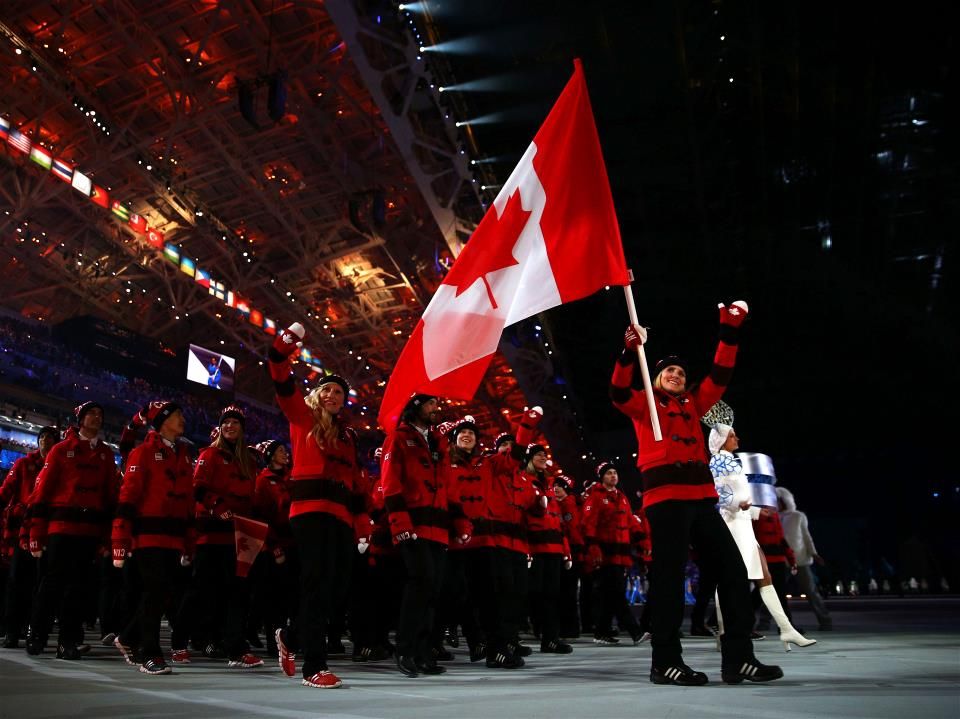
The Russians performed well in figure skating and short track, snowboarding and bobsleigh. They managed to achieve good results in cross-country skiing, biathlon, luge, skeleton and freestyle. 13 gold, 11 silver and 9 bronze medals – this is the overall result of the performance of the Russian team at the Olympics.
On February 8, the first medal day of the 2014 Games (five sets of awards were played) turned out to be the only “bad harvest” for the Russian team. The first gold of the Sochi test went to Sage Kotsenburg (USA, slopestyle snowboarding). Then 40-year-old Ole Einar Bjorndalen (Norway, biathlon) won his seventh career Olympic gold, repeating the record for the total number of medals (12) won at the Winter Olympics.
On February 9, speed skater Olga Graf at a distance of 3000 meters brought Russia the first medal – bronze, simultaneously updating the national record.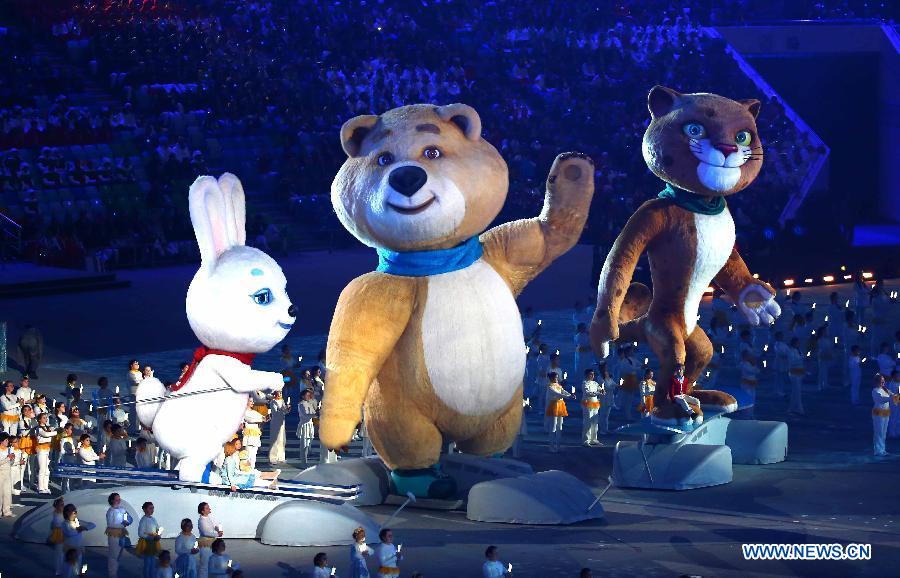
The next day, the medal box of the Russian team was replenished with two unique bronze awards. Becoming third at a distance of 1500 m, the future hero of the Games Viktor Ahn brought the first Olympic medal in the history of Russian short track. In turn, Dynamo freestyler Alexander Smyshlyaev won a bronze medal, which became the first Olympic award for a domestic mogul in the last 20 years – since the silver medal of Sergey Shchupletsov in Lillehammer-94.
On February 11, the only medal was brought to the Russian team by Dynamo skater Olga Fatkulina, who won silver at a distance of 500 meters. Catastrophically unlucky was another Dynamo athlete, Irina Avvakumova, who in the pre-Olympic season regularly won prizes at the stages of the World Cup in ski jumping, and in the first tournament of flying skiers in the history of the Olympic Games she became only sixteenth.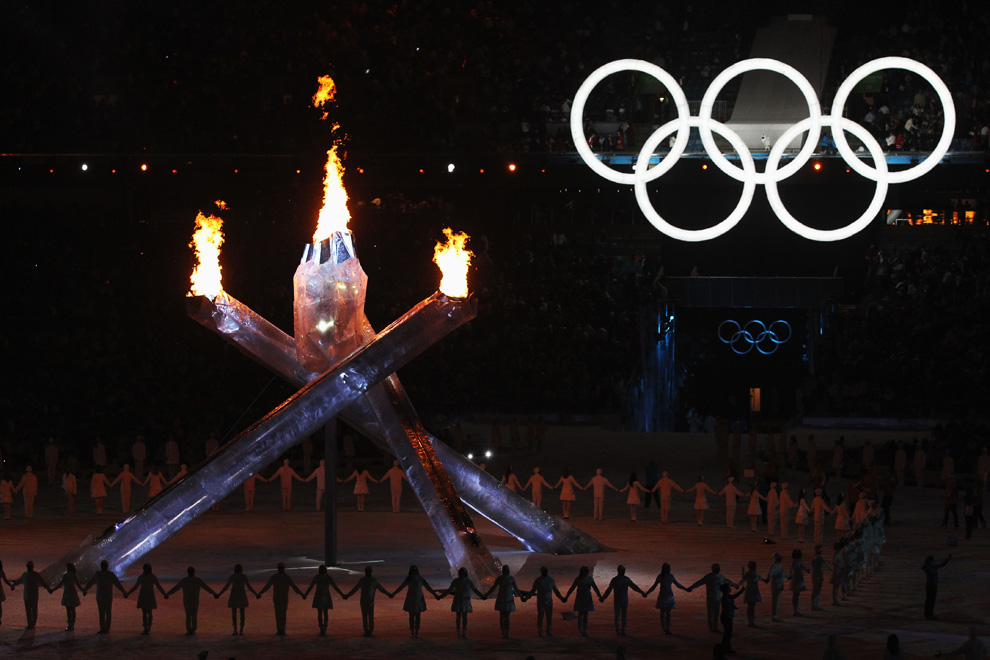
On February 13, the Russian luge team consisting of singles Albert Demchenko and Dynamo luger Tatyana Ivanova, as well as the two-man crew of Alexander Denisyev and Vladislav Antonov, took second place in the team race. Dynamo Evgeny Garanichev on his birthday won bronze in the individual biathlon race for 20 kilometers.
On February 15, the Russians won the first gold medals in the history of Russian sports in two types of the Olympic program at once. Bronze medalist of the Vancouver Games Alexander Tretyakov became the best in the skeleton competitions, and Viktor Ahn – in the short track at a distance of 1000 meters, in which Dynamo player Vladimir Grigoriev also brought silver to Russia.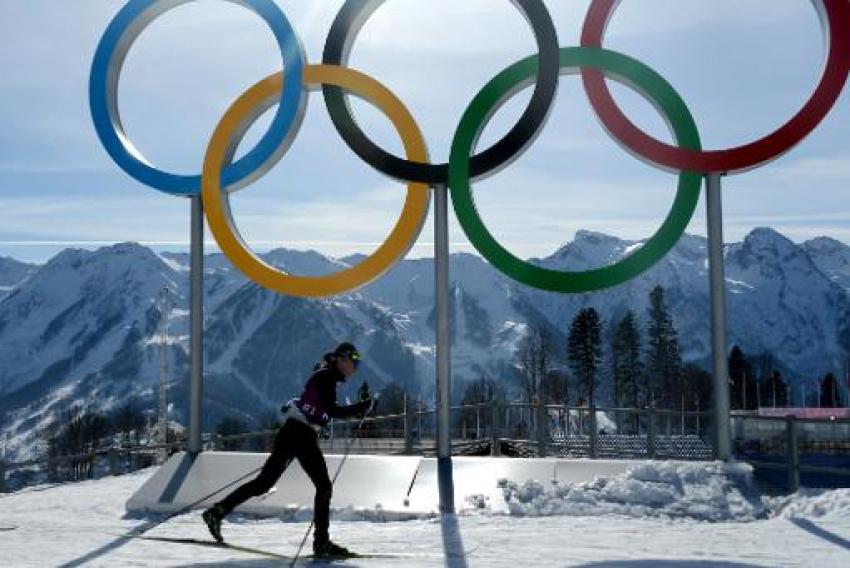
The next day, February 16, the Russian men’s cross-country skiing team, made up entirely of representatives of the Dynamo Society, won the first Olympic medal in the relay since 1988. The silver, which was won by Maxim Vylegzhanin, Dmitry Yaparov, Alexander Bessmertnykh and Alexander Legkov, was also the first award for the Russian ski team at these Games.
On February 19, the Russian men’s cross-country skiing team consisting of Dynamo players Maxim Vylegzhanin and Nikita Kryukov won silver medals in the team sprint. Russian snowboarding couple Vic Wild and Dynamo Alena Zavarzina added two medals to their national team’s treasury in parallel giant slalom, winning gold and bronze respectively. This is only the second time that the couple won Olympic medals on the same day in different types of programs.
On February 21, the Russian national team in short track triumphantly completed its performance at the Olympic Games with two more gold medals, bringing the score of the highest awards alone to three.:no_upscale()/cdn.vox-cdn.com/uploads/chorus_image/image/27844755/137072397.0.jpg)
On February 22, Dynamo biathletes Alexei Volkov, Evgeny Ustyugov, Dmitry Malyshko and Anton Shipulin ended their performance at the Sochi Olympics on a positive note, winning the 4 x 7.5 km relay. Never before has the Russian men’s team, unlike the USSR national team, won the biathlon relay at the Olympic Games. On the same day, Olga Graf, Yulia Skokova, as well as Dynamo skaters Ekaterina Shikhova and Ekaterina Lobysheva won bronze in the team pursuit race.
The men’s 50 km ski marathon on the last day of the 2014 Games ended in triumph for the Russians.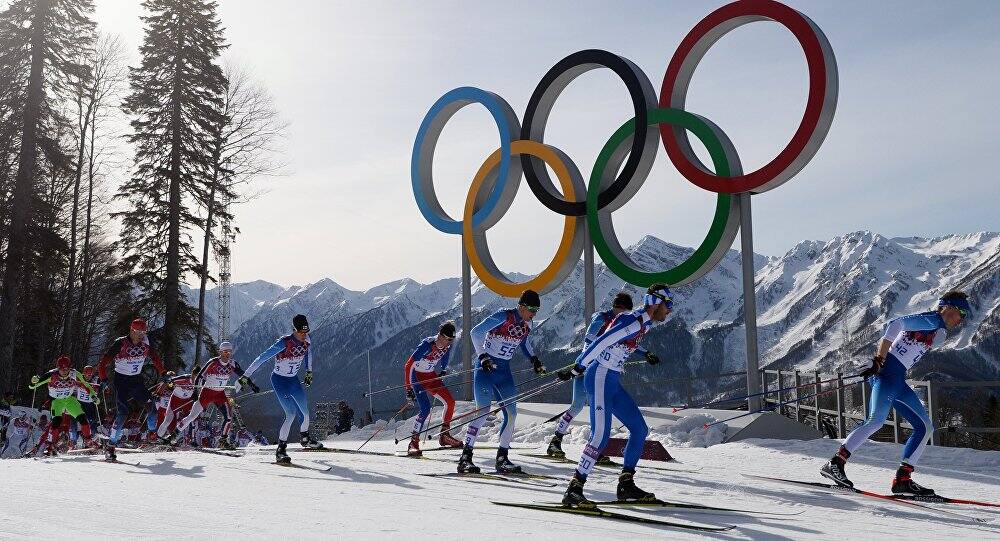
As a result, 19 athletes of the Dynamo Society became champions and prize-winners of the Sochi Olympics. Dynamo players, who accounted for 35% of the national team, brought almost half of the won awards – 15 out of 33 Olympic medals – to the common treasury of the Russian team. On account of Dynamo 3 gold, 8 silver and 4 bronze.
In the unofficial team standings, Russia took first place, the US team, leaving Norway and Canada ahead, became only fourth. However, despite the generally triumphant performance of the Russian Olympians, it should be recognized that the women’s curling team, made up entirely of Dynamo athletes and considered a real contender for medals before the Olympics, did not live up to the hopes of Russian fans.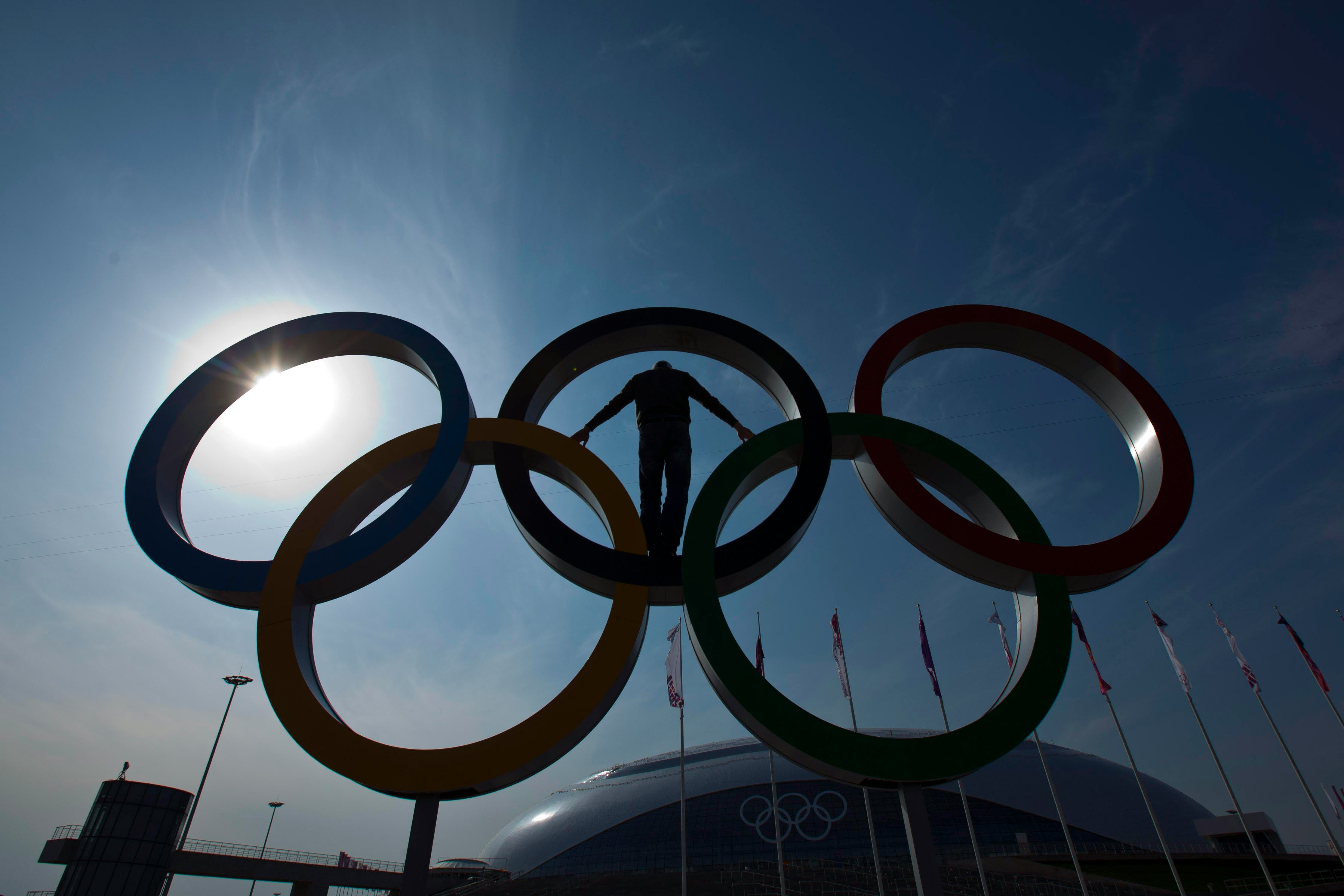
GOLD MEDALS
Short track
relay race 5000 m
– Vladimir GRIGORIEV
– Semyon ELISTRATOV
Biathlon
4×7.5 km relay
– Alexey VOLKOV
– Dmitry MALYSHKO
– Evgeny USTYUGOV
– Anton Shipulin
Cross-country skiing
mass start, st.style, 50 km
– Alexander LEGKOV
SILVER MEDALS
Biathlon
sprint, 7.5 km
– Olga VILUKHINA
4×6 km relay
– Olga VILUKHINA
Speed skating
500 m
– Olga FATKULINA
Luge
team relay
– Tatyana Ivanova
Short track
1000 m
– Vladimir GRIGORIEV
Cross-country skiing
4×10 km relay
– Dmitry YAPAROV
– Alexander Bessmertnykh
– Alexander LEGKOV
– Maxim VYLEGZHANIN
team sprint class style
– Nikita KRYUKOV
– Maxim VYLEGZHANIN
mass start, st.

